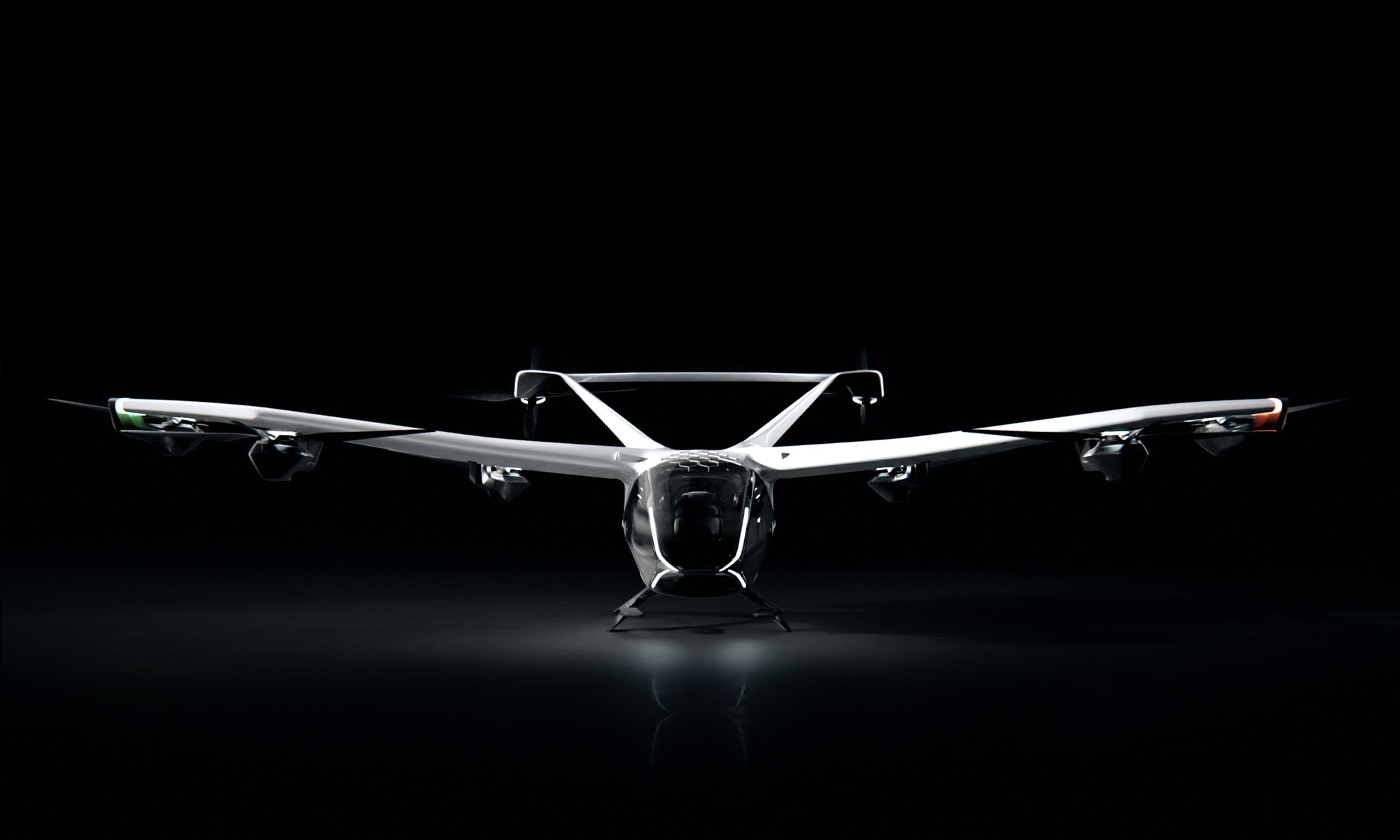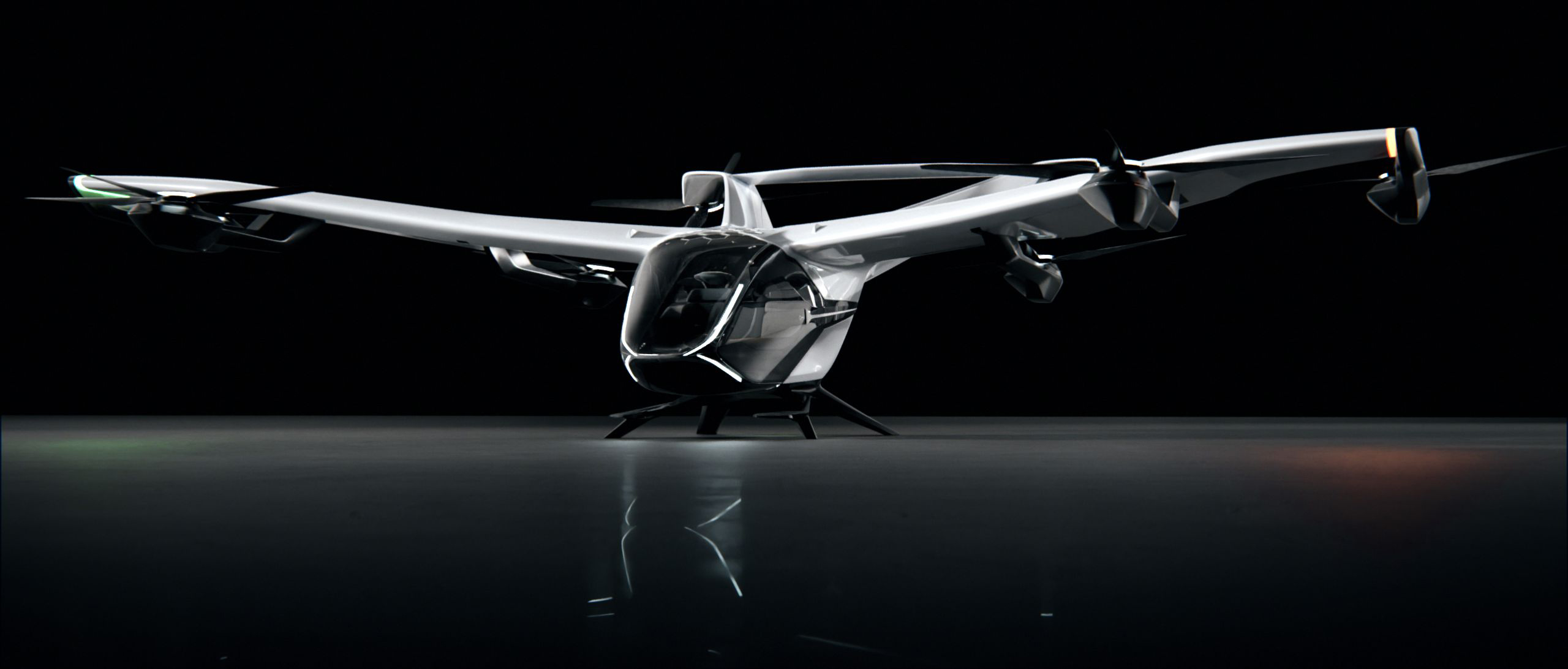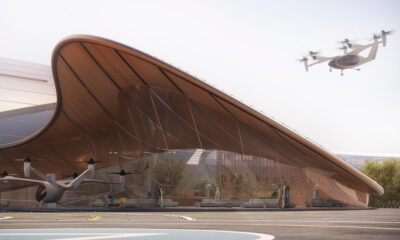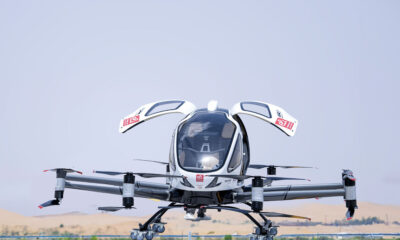News
Airbus Has Revealed Its CityAirbus NextGen Flying Taxi
During flight, the aircraft makes less than 65 decibels of noise, and the figure increases to just 70 decibels during landing.

Nobody likes to sit in traffic, especially not people who can afford to hire their own private jet, and that’s exactly who Airbus is targeting with its next-generation CityAirbus, an electric vertical take-off and landing aircraft (eVTOL) offering for the emerging urban air mobility (UAM) market.
The European multinational aerospace corporation has recently unveiled the new aircraft at its first summit on “Pioneering Sustainable Aerospace”. The CityAirbus NextGen incorporates lessons learned from the design and test operation of the original CityAirbus and the single-seat, tilt-wing Vahana.

It has six electrically powered lifting propellers and two additional electrical propellers on its V-shaped tail for cruise flight, the phase of flight between climb and descent. Airbus claims that it can cover a distance of 80 kilometers (50 miles) at a cruise speed of 120 km/h (75 mph) while carrying up to four passengers. During flight, the aircraft makes less than 65 dB(A) of noise, and the figure increases to just 70 dB(A) during landing.
“The CityAirbus NextGen meets the highest certification standards (EASA SC-VTOL Enhanced Category),” states Airbus in the official press release. “Designed with simplicity in mind, CityAirbus NextGen will offer best-in-class economic performance in operations and support”.
Also Read: Mercedes Concept EQG Electric G-Class Revealed In Munich
Airbus is aware that far more obstacles besides those that can be solved with innovative technology will need to be overcome for the new urban air mobility market to flourish. That’s why the CityAirbus NextGen will initially be piloted by a real human pilot. Once the technology and operational framework for self-flying aircraft are established, Airbus would like the aircraft to operate autonomously.
How long that will take to happen is something even industry experts can’t reliably predict, especially not on a global scale. What’s certain is that flying across major cities won’t be something anyone besides one-percenters will be able to afford for a long time — and maybe never.
News
Rabbit Expands Hyperlocal Delivery Service In Saudi Arabia
The e-commerce startup is aiming to tap into the Kingdom’s underdeveloped e-grocery sector with a tech-first, locally rooted strategy.

Rabbit, an Egyptian-born hyperlocal e-commerce startup, is expanding into the Saudi Arabian market, setting its sights on delivering 20 million items across major cities by 2026.
The company, founded in 2021, is already operational in the Kingdom, with its regional headquarters now open in Riyadh and an established network of strategically located fulfillment centers — commonly known as “dark stores” — across the capital.
The timing is strategic: Saudi Arabia’s online grocery transactions currently sit at 1.3%, notably behind the UAE (5.3%) and the United States (4.8%). With the Kingdom’s food and grocery market estimated at $60 billion, even a modest increase in online adoption could create a multi-billion-dollar opportunity.
Rabbit also sees a clear alignment between its business goals and Saudi Arabia’s Vision 2030, which aims to boost retail sector innovation, support small and medium-sized enterprises, attract foreign investment, and develop a robust digital economy.
The company’s e-commerce model is based on speed and efficiency. Delivery of anything from groceries and snacks to cosmetics and household staples is promised in 20 minutes or less, facilitated by a tightly optimized logistics system — a crucial component in a sector where profit margins and delivery expectations are razor-thin.
Despite the challenges, Rabbit has already found its stride in Egypt. In just over three years, the app has been used by 1.4 million customers to deliver more than 40 million items. Revenue has surged, growing more than eightfold in the past two years alone.
Also Read: Top E-Commerce Websites In The Middle East In 2025
CEO and Co-Founder Ahmad Yousry commented: “We are delighted to announce Rabbit’s expansion into the Kingdom. We pride ourselves on being a hyperlocal company, bringing our bleeding-edge tech and experience to transform the grocery shopping experience for Saudi households, and delivering the best products – especially local favorites, in just 20 minutes”.
The company’s growth strategy avoids the pitfalls of over-reliance on aggressive discounting. Instead, Rabbit leans on operational efficiency, customer retention, and smart scaling. The approach is paying off, having already attracted major investment from the likes of Lorax Capital Partners, Global Ventures, Raed Ventures, and Beltone Venture Capital, alongside earlier investors such as Global Founders Capital, Goodwater Capital, and Hub71.

























